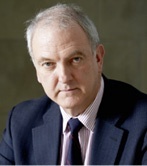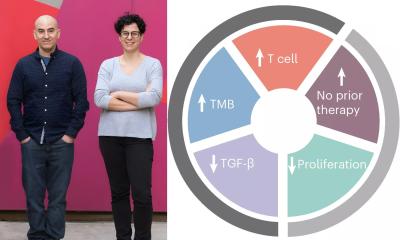Study
Mortality risks rise 11% on Saturdays - 16% Sundays
England’s National Health Service (NHS) is taking steps to ensure that, for the first time, a consistent level of care is provided at weekends by focusing on healthcare seven days a week.

Within the NHS it is acknowledged that some services have been inconsistent at weekends – MRI, CT, ultrasound and X-rays have not been offered as promptly and wards and operating theatres have been left in the hands of junior and inexperienced staff.
After figures revealed that patients are more likely to die if admitted to England’s NHS hospitals at weekends, the Government has acted to bring in seven-day working practices. Professor Sir Bruce Keogh, NHS England’s National Medical Director, has outlined a plan to drive seven-day services across the NHS over the next three years, starting with urgent care services and supporting diagnostics.
There is a significant variation in outcomes for patients admitted to hospitals at the weekend across the country – a problem affecting healthcare systems around the world – seen in mortality rates, patient experience, the length of hospital stays and readmission rates.
Analysis of 14 million hospital admissions in England in 2009/10, for example, showed that the increased risk of mortality at the weekend could be as high as 11% on a Saturday and 16% on a Sunday. The reasons are elements such as variable hospital staffing levels at weekends; fewer decision-makers at consultant level and experience; a lack of consistent support services, such as diagnostics; and a lack of community and primary care services that could prevent some unnecessary admissions and support timely discharge.
60% more consultants
Sir Bruce has set out 10 new clinical standards that describe the standard of urgent and emergency care all patients should expect seven days a week, each supported by clinical evidence and developed in partnership with the Academy of Medical Royal Colleges. They describe how quickly after hospital admittance a patient should be assessed by a consultant; the diagnostic and scientific services that should always be available, as well as the process for handovers between clinical teams.
These include: All emergency admissions to be seen by a consultant within 14 hours; seven-day access to diagnostic tests, such as X-rays, ultrasound, MRI scans and pathology; patients in intensive care and other high dependency units to be reviewed by a consultant twice a day; weekend access to multi-disciplinary teams, including expert nurses, physiotherapists and other medical support staff.
Sir Bruce pointed out that the increasing number of doctors being trained gives the NHS opportunities to work differently. Currently some 6,500 doctors take up entry-level posts each year and projections suggest a 60% rise in the number of consultants by 2020 if training and recruitment continues at the same rate.
‘There are encouraging examples,’ he said, ‘for NHS organisations that have moved to making healthcare services more accessible seven days a week to avoid compromising safety and patient experience. We need to accelerate the pace and spread of these changes. In doing so, we can ensure the NHS leads the world in providing equality of access to consistent, high quality healthcare, seven days a week.’
Junior doctors ‘feel clinically exposed and unsupported at weekends and hospital chief executives are worried about clinical cover,’ Sir Bruce pointed out. ‘It seems inefficient that, in many hospitals, expensive diagnostic machines and laboratory equipment are underused at weekends, operating theatres lie fallow and clinics remain empty.’ he added
Without a doubt, as Sir Bruce underlined, the case for radical change has been both clinically and morally ‘compelling’.
Profile:
During the transition to new NHS structures Professor Sir Bruce Keogh has continued in his role as Medical Director of the National Health Service (NHS) in England, with responsibility for clinical quality, policy and strategy and postgraduate education of doctors, dentistthe s, pharmacists and clinical scientists.
Sir Bruce has also enjoyed a distinguished career in surgery and was President of the Society for Cardiothoracic Surgery in Great Britain and Ireland, Secretary-General of the European Association for Cardio-Thoracic Surgery, International Director of the US Society of Thoracic Surgeons, and President of the Cardiothoracic Section of the Royal Society of Medicine. In 2003 he received a knighthood for services to medicine.
16.05.2014





